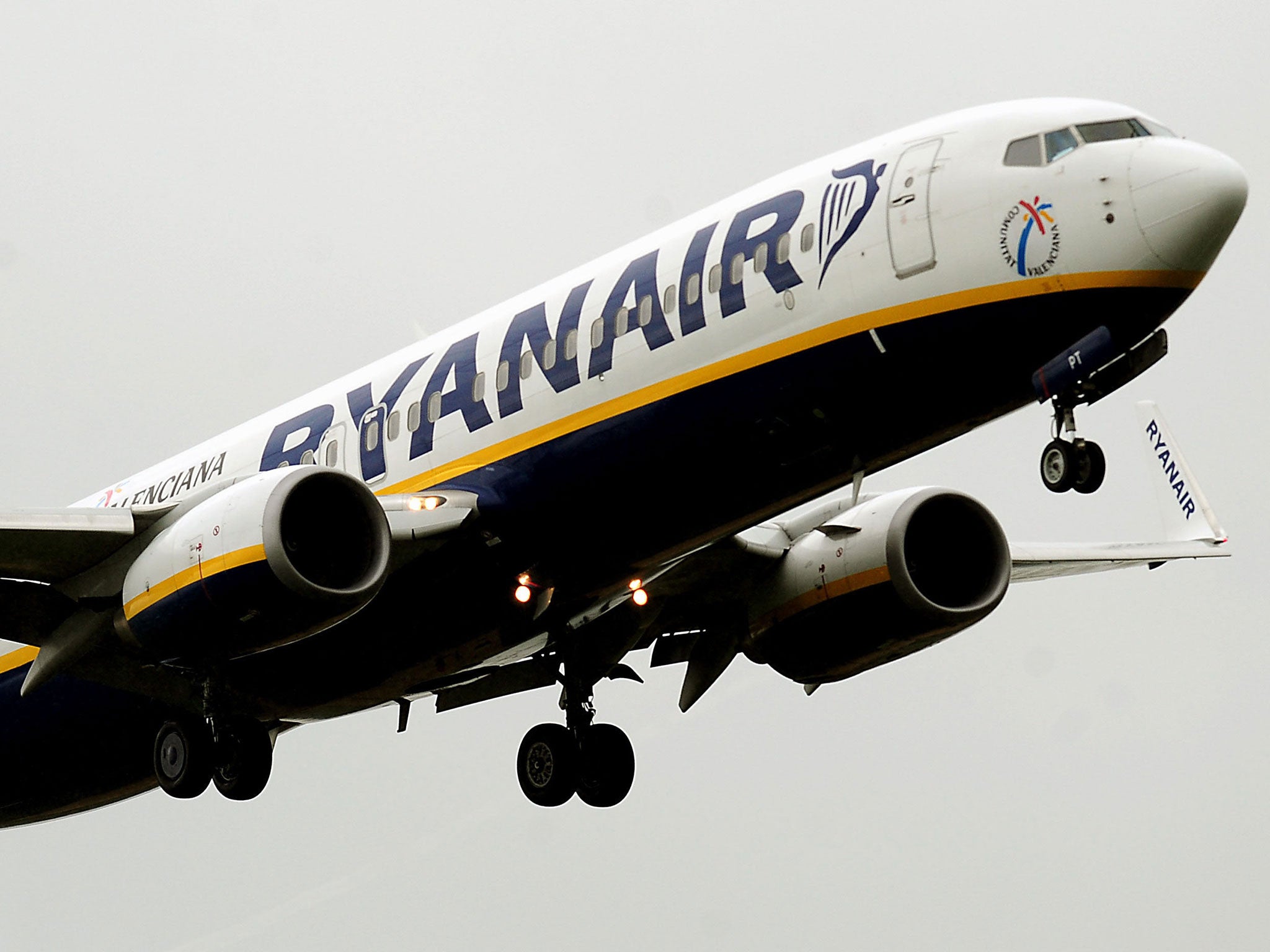Ryanair: Budget airline hits back after losing delayed flight compensation ruling
The company lost a case in which two passengers sought €250 (£175) each

Your support helps us to tell the story
From reproductive rights to climate change to Big Tech, The Independent is on the ground when the story is developing. Whether it's investigating the financials of Elon Musk's pro-Trump PAC or producing our latest documentary, 'The A Word', which shines a light on the American women fighting for reproductive rights, we know how important it is to parse out the facts from the messaging.
At such a critical moment in US history, we need reporters on the ground. Your donation allows us to keep sending journalists to speak to both sides of the story.
The Independent is trusted by Americans across the entire political spectrum. And unlike many other quality news outlets, we choose not to lock Americans out of our reporting and analysis with paywalls. We believe quality journalism should be available to everyone, paid for by those who can afford it.
Your support makes all the difference.Europe’s biggest budget airline has responded furiously to another pro-consumer judgment in the long-running saga of airline passenger compensation.
Ryanair lost a case at Manchester County Court in which two passengers sought €250 (£175) each for a flight delay from Spain to Britain in 2008.
Archana Goel and Diwakar Trivedi from London were nearly 10 hours late arriving at Stansted from Reus because of a technical fault on the Boeing 737. They made a claim against the Irish airline five years and eight months after the trip.
Ryanair had insisted that its terms and conditions limited the right to claim to two years. When buying tickets, passengers are required to accept a clause that says: “Any right to damages and/or compensation shall be extinguished if an action is not brought within two years”. Many other airlines have similar conditions.
But European passenger-rights rules, known as EC261, stipulate that airlines cannot limit their obligations with a “restrictive clause in the contract of carriage”.
In his ruling, Judge Platts described Ryanair’s contention to the contrary as: “A somewhat ingenious legal analysis which I doubt was in the mind of the parties when the contract was made.”
Ryanair said in a statement: “Since we believe a six-year time limit for submitting such claims is both unnecessary and unreasonable, we have instructed our lawyers to immediately appeal this ruling.”
Hundreds of cases on similar lines are believed to be “stayed” until the case is settled.
At the time of the disrupted journey in 2008, European passenger-rights rules did not extend to delays. But a subsequent legal ruling allowed claims for arriving three hours or more late.
For flights under 1,500km, the stipulated compensation is €250 (£175); for trips of 1,500-3,500km it is €400 (£280); and passengers on longer flights are entitled to up to €600 (£425).
Airlines need not pay compensation when the disruption is due to “extraordinary circumstances,” such as bad weather, strikes and air-traffic control problems. Technical faults to not qualify for this exemption.
A number of no-win, no-fee firms fight cases on behalf of travellers, taking about one-third of any compensation that is paid.
The Supreme Court ruled last year that retrospective claims could be made for up to six years in England and Wales, the maximum allowed under the statute of limitations. The latest judgment was made on a different point of law but reinforces the basic principle. Had Ryanair won, other airlines might have applied the same time bar to existing and future claims.
Kevin Clarke, a flight-delay specialist for the Cheshire law firm Bott & Co, said:“We’re delighted that the court has dismissed yet another argument put forward by the airlines to restrict passenger rights.”
His company calculates that the decision could cost Ryanair £610m in backdated claims from more than 2m passengers, but this figure was rubbished by the airline. A Ryanair spokesman said its potential liability “is likely to be less than €5m [£3.5m]”.
Join our commenting forum
Join thought-provoking conversations, follow other Independent readers and see their replies
Comments